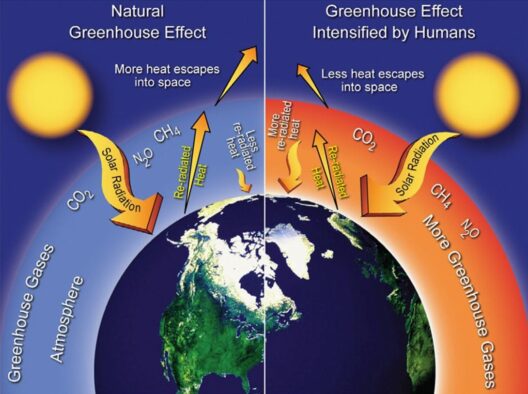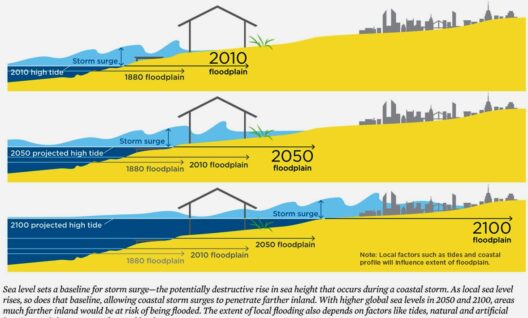Energy conservation, an enigmatic yet crucial endeavor, is akin to nurturing a delicate ecosystem where balance and sustainability reign supreme. As the sun ascends each morning, we are gifted with a boundless energy source—solar radiance—yet our consumption patterns often mimic a voracious beast, devouring resources without contemplation. The dichotomy of human progress and environmental stewardship necessitates a profound understanding of energy conservation, illuminating both its environmental and economic merits.
Unraveling the Ecological Tapestry
At the heart of energy conservation lies an intricate network of ecological interdependencies. The drastic climate fluctuations we endure today can be attributed to the relentless extraction and consumption of fossil fuels. Every watt of energy we harness carries with it a carbon footprint, tarnishing the very air we breathe. The metaphor of the Earth as a fine tapestry illustrates this beautifully; each thread represents a distinct element of our environment—forests, oceans, wildlife, and atmosphere—interconnected and interdependent. If one thread is frayed, the entire fabric risks unraveling.
Conserving energy mitigates harmful emissions, allowing carbon-dioxide levels to diminish. This overall reduction contributes to the stabilizing of climate patterns, subsequently fostering biodiversity. For instance, the preservation of energy resources directly influences the health of habitats where wildlife congregates. By conserving energy, we are meticulously weaving a future where ecosystems flourish rather than falter, thus extricating humanity from the throes of ecological degradation.
The Fiscal Advantages of Sustainability
Transitioning to an energy-efficient paradigm is not solely an environmental imperative; it also engenders substantial economic benefits. Economies worldwide grapple with the staggering costs associated with energy consumption. The financial burdens of energy production, predominantly stemming from fossil fuels, abound in the form of price volatility, fluctuating fuel costs, and geopolitical tensions. In contrast, energy conservation paves the way for economic resilience.
Consider, for instance, the burgeoning field of renewable energy. As we pivot towards harnessing solar, wind, and hydroelectric power, communities are witnessing an economic renaissance. Investing in energy-efficient technologies and infrastructure positions regions to reap long-term savings on utility bills. These savings can be redirected into infrastructure development, education, and healthcare—activities that yield a multiplier effect on local economies.
Moreover, the creation of green jobs is a byproduct of this transition. Positions in the renewable energy sector—from solar panel installation to energy auditing—not only provide employment opportunities but also invigorate local economies. Thus, energy conservation acts as a catalyst, propelling job creation while simultaneously establishing a more sustainable energy framework.
Enhancing Energy Efficiency: Pragmatic Strategies
Understanding the necessity of energy conservation lays the groundwork; however, action is imperative. We must cultivate a culture of energy efficiency that transcends individual efforts and permeates institutions, businesses, and governments.
One pragmatic strategy involves the retrofit of buildings to be more energy-efficient. By integrating advanced technologies such as LED lighting, smart thermostats, and high-efficiency HVAC systems, we can drastically reduce energy consumption. The transformation of urban spaces into green facades and eco-friendly infrastructures can precipitate not only energy savings but also aesthetic and health-related improvements. Studies indicate that access to greener environments fosters positive mental health outcomes, promoting well-being across communities.
On the industrial front, manufacturers can implement energy management systems that optimize operations. By assessing energy usage and diagnosing inefficiencies, companies can streamline processes and diminish waste, resulting in both economic savings and reduced environmental impact.
In addition, advocating for policies that incentivize energy conservation plays a pivotal role in galvanizing larger systems change. Governments must prioritize sustainable energy initiatives, facilitating research and development in renewable technologies, enforcing energy efficiency standards, and providing tax incentives for energy-saving modifications.
**Culminating Reflections on Energy Conservation**
In conclusion, the interconnectedness of environmental preservation and economic viability becomes ever more apparent in our journey towards energy conservation. As stewards of the Earth, we must embrace the delicate balance inherent in our ecosystems, prompting us to reconsider our consumption habits. Energy conservation is not merely a strategy for saving money; it is a moral imperative that underscores our collective responsibility to future generations.
Embracing energy conservation inspires us to envision a world where the tapestry of life thrives on sustainable practices, engendering a harmonious coexistence with the planet. Overall, as we embark on this path, the nuanced benefits of energy conservation—both for the environment and the economy—remain ever clearer, illuminating the possibilities that await our concerted efforts.







